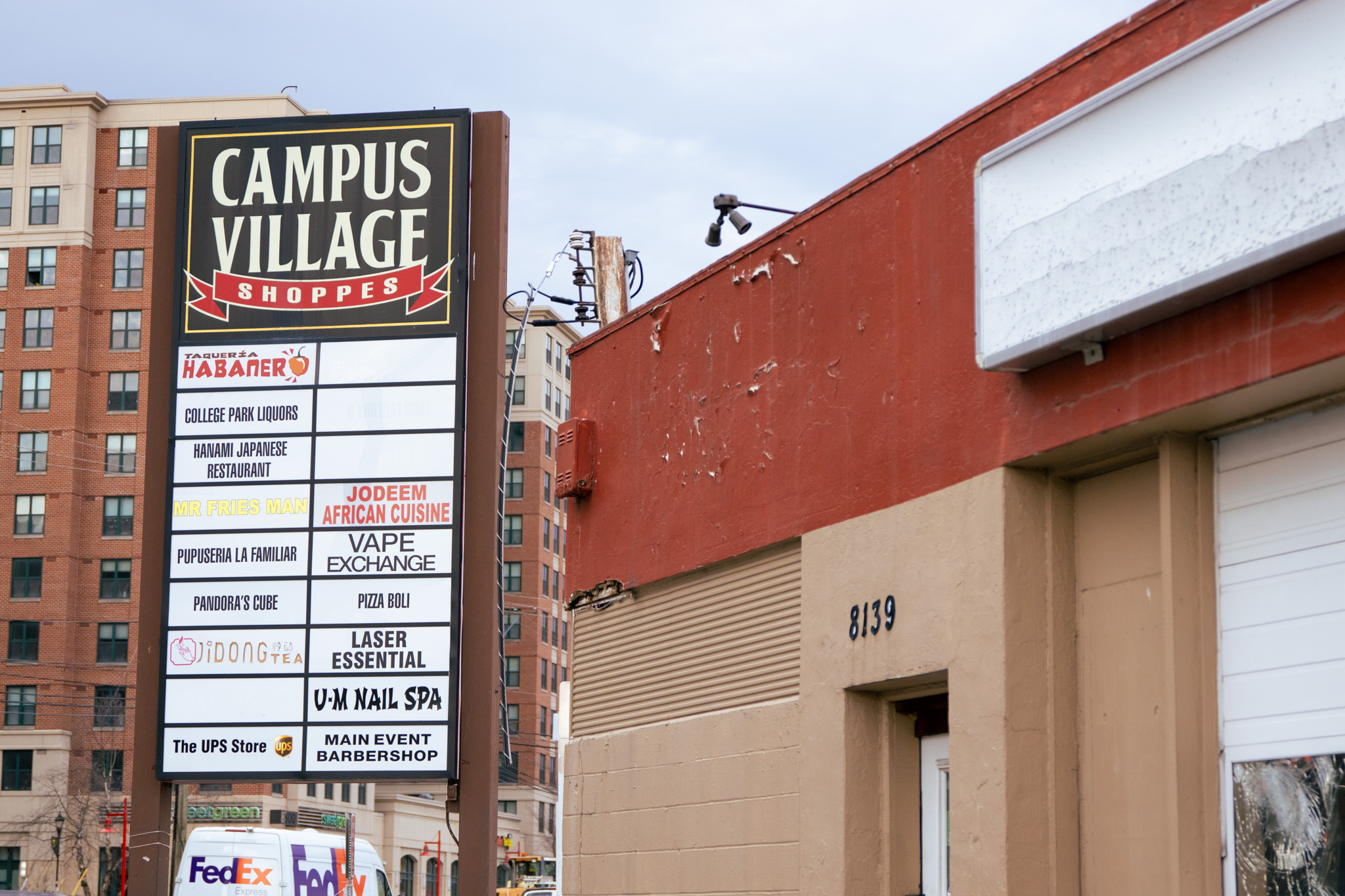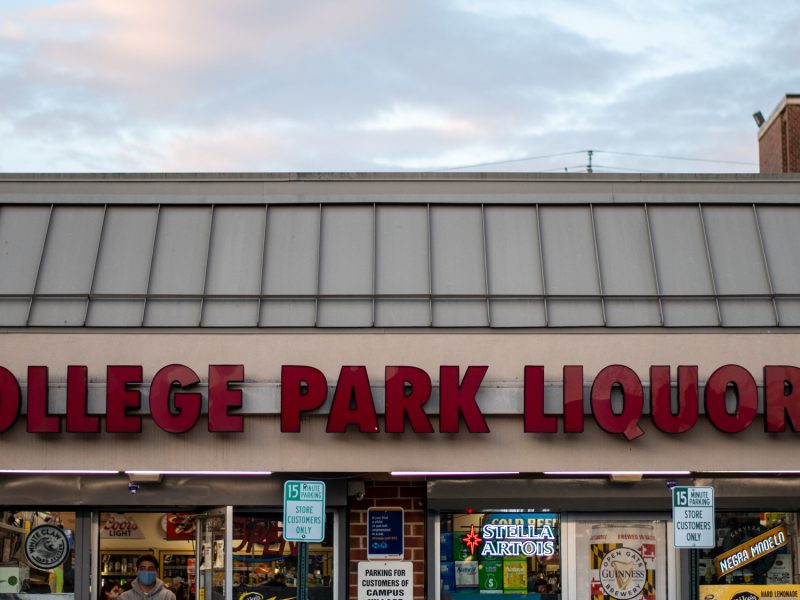When LV Collective purchased Campus Village Shoppes with the intent to turn the shopping center into multi-use apartments, Lakeland community leaders Maxine Gross and Ruth Murphy were disappointed.
The proposal reminded them of the 1970s, when Lakeland lost several local businesses during an urban renewal process that decimated the neighborhood’s Black community.
But after more than a year of community discussions, Lakeland leaders were able to secure a space inside the development to benefit the community — a new community center.
“We wanted something out of the deal rather than nothing, like Lakeland usually got nothing out of these renewal programs,” Murphy, the vice president of the Lakeland Civic Association, said. “We asked them for the space.”
LV Collective recently released details about the updated proposed plan after the Maryland National Capital Park and Planning Commission accepted their plan for formal review.
Campus Village Shoppes, which has slowly shuttered in the last few months, was a prime location for local businesses in a sea of chains in College Park. Only four of the old businesses — Taqueria Habanero, Hanami Sushi, Mr. Fries and the UPS Store — will return to the space, according to the proposed plan.
The Lakeland Community Heritage Project, a group that works to document the history of Lakeland, will oversee the community center and museum exhibits inside the new apartment building. LV Collective will pay for rent, cleaning and furnishing the space, according to Gross, the Lakeland Community Heritage Project’s president.
[UMD students, Lakeland residents advocate for “revolutionary” change in neighborhood]
The Lakeland Legacy Center in the apartment’s retail space will include a library, kitchen and flexible-use space for meetings and other community events, Gross said.
The space will also include tools to learn about and contribute to Lakeland’s archives. Gross said there will likely be archival photographs, books, maps and a digital exhibit to capture the community before urban renewal.
This will be the first place where the community can consistently view the Lakeland archives, which are currently stored in a community member’s home, and learn about the community’s history, Gross said.
“It will be a place where folks will be able to learn about the Lakeland legacy and where that legacy can be grown and passed on,” Gross said.
The new “student-oriented” building coming to the site will include nearly 300 rental units and 13,000 square feet of retail space, according to an LV Collective press release. The apartment complex is set to open in fall 2027.
Gross is against high density development, such as this apartment complex, in the Lakeland community.
For Gross, the local businesses in Campus Village Shoppes partially restored the essence of the Black-owned commercial district that used to be in Lakeland by providing gathering places and local establishments, she said. Its destruction reminded her of the devastation her community and local small businesses faced during the urban renewal movement that displaced most of the Lakeland community from the 1960s to 1980s.
“It’s really hard for me to think about the loss of those shops without thinking about the losses Lakeland has experienced at other times,” Gross, whose family has lived in Lakeland since the early 1900s, said.
[Lakeland residents say they want their visions prioritized in restorative justice initiatives]
The construction of another high-rise apartment within the Lakeland community will be inconvenient for residents who relied on the small businesses scene in Campus Village Shoppes, Lakeland resident Willie Sellers said. Many residents don’t have cars or cook often, and rely on nearby stores for basic necessities, he said.
Throughout Sellers’ life, he said he has seen immense changes to his neighborhood, which have not always been for the better. Sellers saw the same parcel of land transition from woods, to a collection of separate stores and finally to the Campus Village Shoppes. He will now see that land transformed once again into a building that matches the high-rise apartments dotting Route 1.
“It has never been about the neighborhood,” Sellers said. “It has always been about somebody else’s vision.”
Lakeland community members learned of the plans to construct the apartment building shortly after LV Collective purchased the land in 2022, according to Gross. The company reached out to community organizations to understand how to reduce harm to Lakeland, she said.
“I think that was done as an honest attempt to, in some way, offset the impact of the building on the community,” Gross said.
In a Feb. 15 press release, Andreé Sahakian, LV Collective’s senior development manager, said his team worked closely with the city and the Lakeland community to “create this development that will bring value and vibrancy to this neighborhood and honor its identity.”
Murphy said she, along with other Lakelanders, hoped to get another asset for the community out of the development. Since the collaboration began, the LV Collective has been “very pleasant” to work with and has given Lakelanders “everything we have asked for,” she said.
“They have really bent over backwards to try to appease the group that’s been working with them and building a space for us in their high-rise building,” Murphy said.
Despite the positive community outreach, Gross said LV Collective and local politicians who zoned the area make decisions that impact Lakeland for their own economic benefit. Moving forward, she hopes the same stakeholders will focus on supporting the community instead.
“The same forces that helped to destroy commercial life of the community twice, I’m hoping can become engaged in the process of restoring some of that, whatever that looks like,” Gross said. “Our biggest goal is to draw a line in the sand, as it were, and to not let what remains of the community be in danger.”



